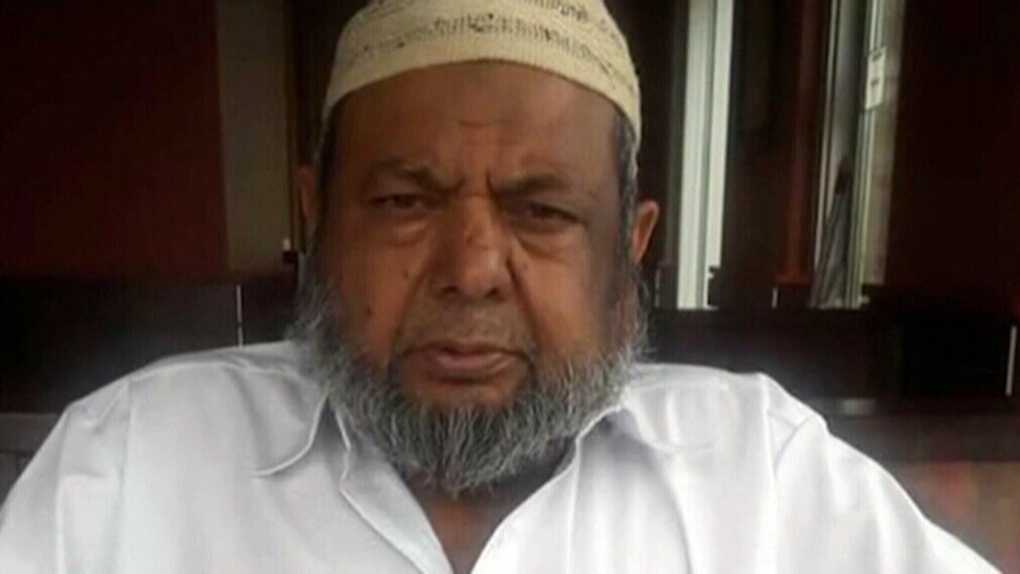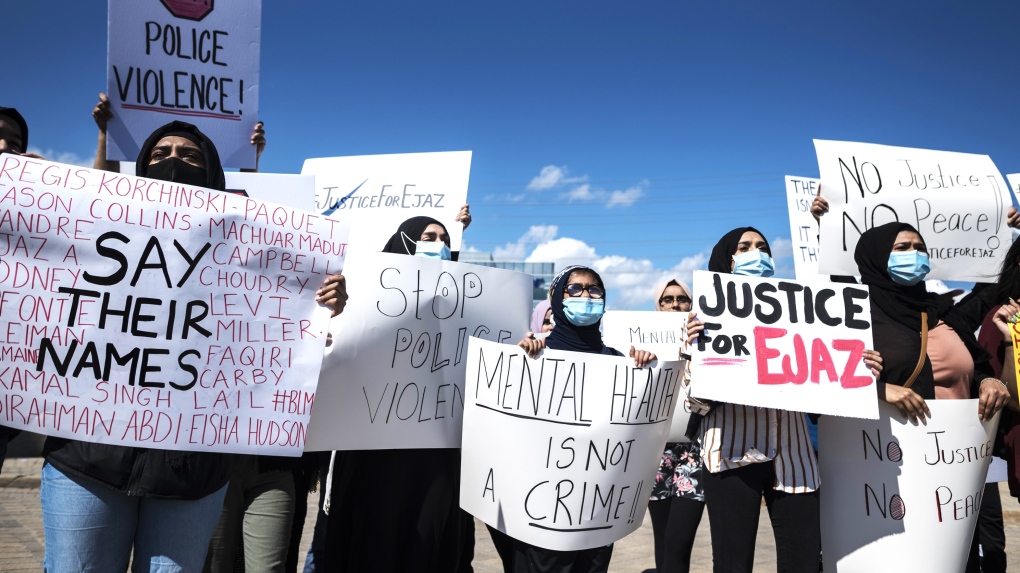Cops involved in Ejaz Choudry’s death fail to justify anonymity order with evidence of risk, lawyer argues
The five officers involved in the shooting death of Ejaz Choudry have failed to provide the evidence needed to cast aside open court principles and justify shielding their identities from the public, lawyers representing Choudry’s family argued at a Tuesday hearing.
Choudry, who had schizophrenia, was fatally shot by police inside his Mississauga apartment on the evening of June 20, 2020. Officers arrived at the residence at around 5 p.m. after his daughter called paramedics for assistance. He had not taken his medication, she reported, and was in crisis.
At around 8 p.m., Choudry, still inside the unit, had stopped responding to officers, they said. Police then breached the home and fired their weapons.
Choudry, 62, died at the scene.

In 2021, an investigation by Ontario’s police watchdog found no reasonable grounds to criminally charge any of the officers and all five were cleared.
Two years later, the Choudry family filed a lawsuit against Peel police, claiming it allowed a “straightforward mental health call” to turn into a “high-risk tactical operation” ultimately resulting in the father of four’s death. It is these civil proceedings, and the subsequent public court records produced, in which police have requested their identities be protected under a publication ban and anonymity order, arguing that the public’s response to the events has left them fearful for their safety.
In the wake of Choudry’s death, a number of protests demanding police reform and calling for the release of the officers’ identities were held across Toronto. At some of those protests, one participant displayed ‘Wanted’ posters, featuring the image of Peel police chief Nishan Duraiappah.
Ted Key, representing the officers at Tuesday’s hearing, said that at another protest, a participant said they would “blow up a police station uni-bomber style” if anything happened to their family member at the hands of police. At another, a civilian told an uninvolved officer he was a “marked man.”
While the officers were not personally targeted at these protests, as they had not been identified, they wrote in affidavits that these movements left them feeling fearful and threatened, Key told the court.
 People hold signs outside Peel Regional Police Headquarters during a justice rally for Ejaz Choudry, a 62-year-old man who was shot and killed by police, in Mississauga, Ont., on Saturday, June 27, 2020. THE CANADIAN PRESS/ Tijana Martin
People hold signs outside Peel Regional Police Headquarters during a justice rally for Ejaz Choudry, a 62-year-old man who was shot and killed by police, in Mississauga, Ont., on Saturday, June 27, 2020. THE CANADIAN PRESS/ Tijana Martin
The only example provided Tuesday that included conduct specifically targeting the involved officers was a video shared to social media in the months after the incident. In it, a civilian threatened to release one of the officers’ addresses and called for the public to “deal with him,” Key told the court. Police investigated this threat and found it to be unsubstantiated.
The lawyer said the overall actions of the protestors, both direct and indirect, contributed to the climate of fear experienced by the officers, and that their right to safety outweighs the public’s right to open court documents.
Simon Beiber, representing the Choudry family, argued that most of the evidence submitted by the police was drawn from the threat assessment report, which does not meet the threshold for an anonymity order. Beiber told the court the report had been authored by an officer who was not present at any of the protests but rather, “cherry-picked” from the accounts of officers who were present.
“There is not a lick of evidence that anything of all has come of [the conduct of protestors],” Beiber said. “If there had, the officers or police would tell [Justice Perell] about it, but it’s been four years and nothing, nothing at all has come of it.”
Beiber also argued the report’s finding — that it would be an “impossibility” to determine the risk to the officers — rendered it useless to the court’s ultimate decision.
“It’s not enough to set aside the open court principle,” he said.
Following the officers’ submissions, the Canadian Civil Liberties Association (CCLA), the Canadian Muslim Lawyers Association (CMLA), and the Canadian Broadcasting Corporation (CBC) will have the opportunity to make their own submissions. Back in November, the latter three groups were granted intervener status to provide context on and argue as to why the officers’ names should be made public.
The hearing began at 10 a.m. and is ongoing.
This is a developing story. More to come…
View original article here Source









